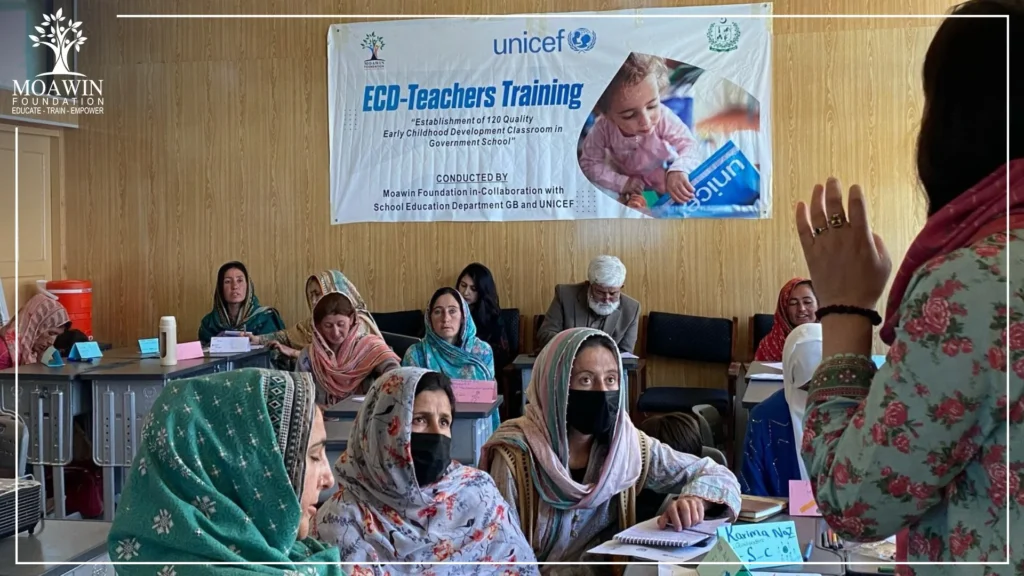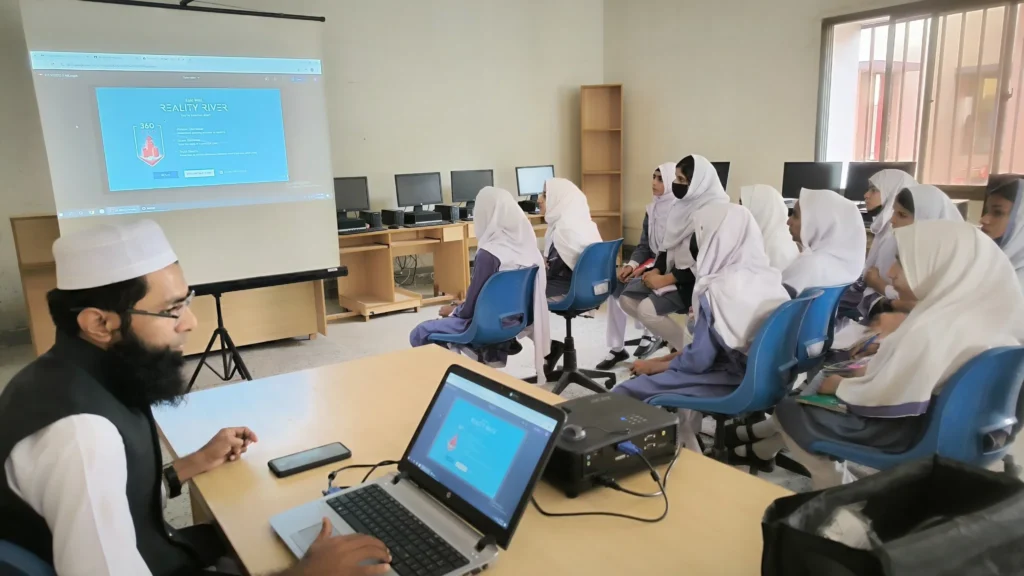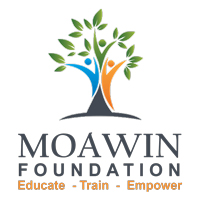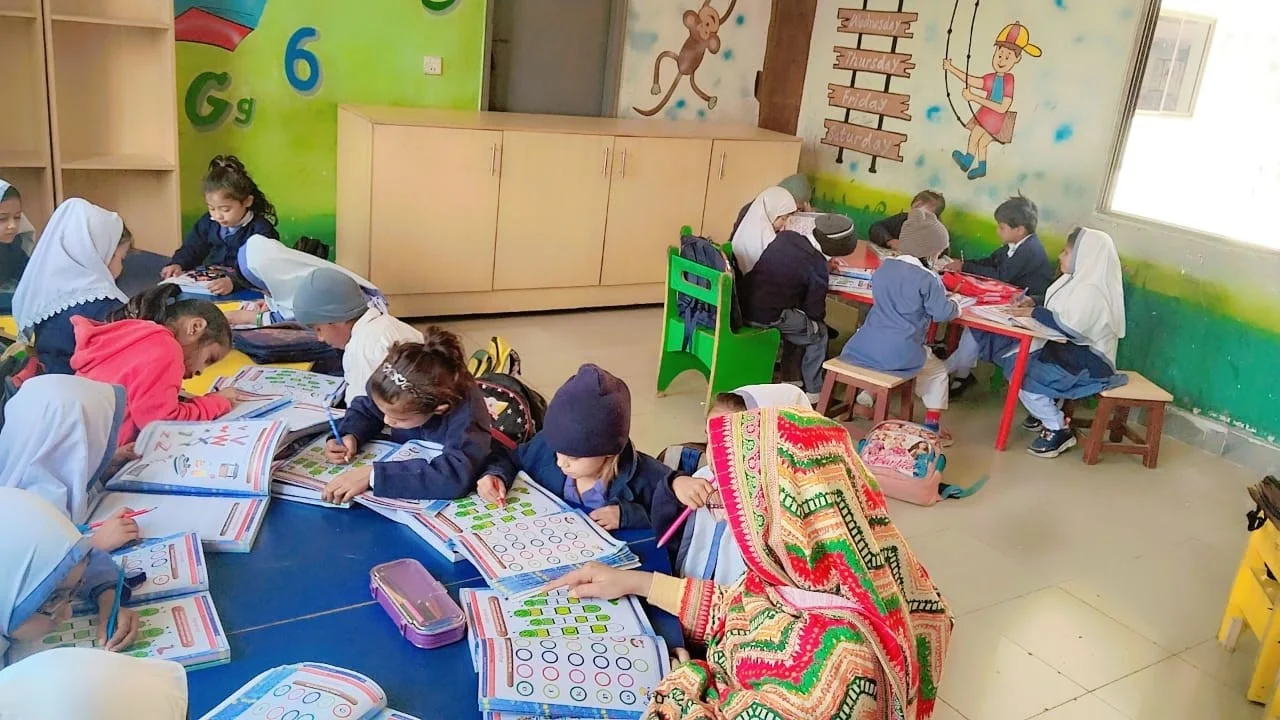Introduction
Education is the foundation of a nation’s progress. Yet in Pakistan, millions of children are still out of school. Government institutions often struggle with limited resources, undertrained teachers, and poor infrastructure. In this environment, educational NGOs in Pakistan play a vital role. They bridge gaps and create opportunities for children who might otherwise be deprived of learning. Among them, Moawin Foundation stands out with a unique and impactful approach. It reforms schools, empowers students, and uplifts entire communities.
The Role of Educational NGOs in Pakistan
Educational NGOs in Pakistan serve as a lifeline for the country’s struggling education system. They help improve access to schooling, ensure better teaching quality, and provide facilities that government institutions alone cannot fully sustain. These organizations directly contribute to the United Nations’ Sustainable Development Goal 4 — Quality Education — by ensuring that children in underserved communities receive the chance to learn in safe, well-equipped, and supportive environments.
Moawin Foundation has positioned itself at the forefront of this movement by focusing on sustainable reforms rather than short-term solutions. Its education model addresses the root causes of weak schooling systems and works to build long-lasting improvements in quality and access.
Moawin Foundation’s School Adoption Model
Moawin Foundation’s mission is driven by its school adoption program. This model strengthens existing government schools rather than creating parallel systems. This approach allows for broader outreach with fewer resources, ensuring that more children benefit from meaningful reforms.
To date, Moawin Foundation has adopted over 338 schools. This work has transformed the learning experiences of 45,668 students, out of which around 60% are girls. This is a powerful contribution to addressing Pakistan’s gender gap in education.
Moawin Foundation’s adoption model is not limited to one location — it has grown into a nationwide effort.
- In Islamabad, Moawin Foundation has adopted 12 schools in Alipur Frash Union Council and is preparing to expand into Tarnol UC.
- In Pind Dadan Khan, Jhelum, 4 government schools have been transformed.
- In Sheikhupura, Moawin Foundation now manages 19 schools across 3 Union Councils, serving around 5,000 students.
- In Gilgit-Baltistan, the foundation has adopted 65 schools across 10 districts, bringing quality education to some of the most remote mountainous regions.
- In Karachi, nearly 1,000 children are enrolled in Moawin-supported schools in Jamali Goth and Gadap Town.
This widespread presence shows Moawin Foundation’s strong commitment. No child should be left behind — whether in a remote village, a mountain district, or an underserved urban neighborhood.
Teacher Training and Quality Education
One of the most critical factors in improving education is the quality of teaching. Recognizing this, Moawin Foundation has invested significantly in building teacher capacity and teacher training programs. Over 3686 teachers have been trained, and 1,053 teachers and support staff have been hired, ensuring that classrooms are managed by skilled professionals capable of inspiring students and creating a positive learning environment.
Through continuous training and mentoring, teachers are not only equipped with subject knowledge but also modern pedagogical skills. This investment directly impacts the quality of education students receive, leading to better outcomes and a more motivated learning community.

Early Childhood Care and Education (ECCE) Centers
Research shows that the early years of a child’s life are the most critical for intellectual and social development. Understanding this, Moawin Foundation has established 70 Early Childhood Care & Education centers, enrolling over 2,500 children. These centers are designed to nurture curiosity and lay the foundation for lifelong learning.
A powerful example of this impact is the story of Zaheera, a mother who enrolled her son in Moawin Foundation’s ECD Center in Dain. Initially doubtful after unsuccessful experiences with private schools, she soon noticed remarkable changes in her child. He developed habits of discipline, hygiene, and respect while becoming more eager to attend school every day. Other mothers in the community shared similar stories, highlighting how the ECD center had sparked confidence and enthusiasm in their children.
Zaheera’s story is not just about one child — it reflects how Moawin Foundation’s early childhood initiatives are reshaping communities by instilling positive values from the very beginning of a child’s educational journey.
Infrastructure and Technology Upgrades
A well-functioning school requires more than classrooms and teachers; it needs proper facilities to support learning. Moawin Foundation has upgraded 186 schools with improved infrastructure, ensuring safe and conducive environments for education. From renovated classrooms to better sanitation facilities, these improvements make schools more welcoming and effective.
To complement traditional teaching, Moawin Foundation has also introduced 212 EdTech classrooms, bringing technology into education and making learning more interactive. In addition, 136 schools have participated in spelling bee programs, and 136 schools run moral and ethics sessions, reflecting Moawin Foundation’s holistic approach to student development.

Transforming Lives in Remote Areas
For many children in Pakistan’s remote and mountainous areas, access to education has always been a distant dream. The story of Shahnaz, a student from Gilgit-Baltistan, shows how Moawin Foundation is changing this reality.
Growing up in a deprived village, Shahnaz faced enormous challenges — walking four hours daily to reach her school while her father struggled to provide for a family of twelve through daily wage labor. Despite her determination, she feared her dreams of continuing education would remain unfulfilled.
That changed in February 2020 when Moawin Foundation adopted her school and upgraded it to the 8th grade. For the first time, quality education was available at her doorstep. With fees waived, stationery provided, and teachers trained, Shahnaz’s dream became a reality. Today, she studies with hope and gratitude, praying for the Moawin Foundation’s growth so that other children in her region can also benefit.
Her story is a powerful reminder that educational reforms do more than provide knowledge — they transform lives and futures.
Why Donor Support Matters in Education
Behind every successful school adoption, teacher training, or ECD center is the support of generous donors. Their contributions allow Moawin Foundation to scale its impact and continue transforming thousands of schools across the country.
As Nelson Mandela once said,
“Education is the most powerful weapon which you can use to change the world.”
Moawin Foundation is turning this vision into reality — but only with the partnership of those who believe in the power of education to uplift communities.
Donors are not just funding education; they are investing in the future of Pakistan. Every contribution directly supports a child’s right to learn, a teacher’s ability to inspire, and a community’s hope for a brighter tomorrow.
For those looking to make a meaningful difference, supporting an educational NGO like Moawin Foundation ensures that their efforts are both impactful and sustainable.
Conclusion
Educational NGOs in Pakistan are essential partners in building a brighter future for children and communities. By adopting schools, training teachers, establishing early childhood centers, and upgrading infrastructure, Moawin Foundation has already changed the lives of tens of thousands of children.
The stories of students like Moheed and Shahnaz illustrate the power of these efforts — turning dreams into reality, one school at a time. With continued support, Moawin Foundation can scale its work and ensure that every child, no matter where they are born, has access to quality education and the opportunity to succeed.
Supporting Moawin Foundation means supporting education, empowerment, and the future of Pakistan.


